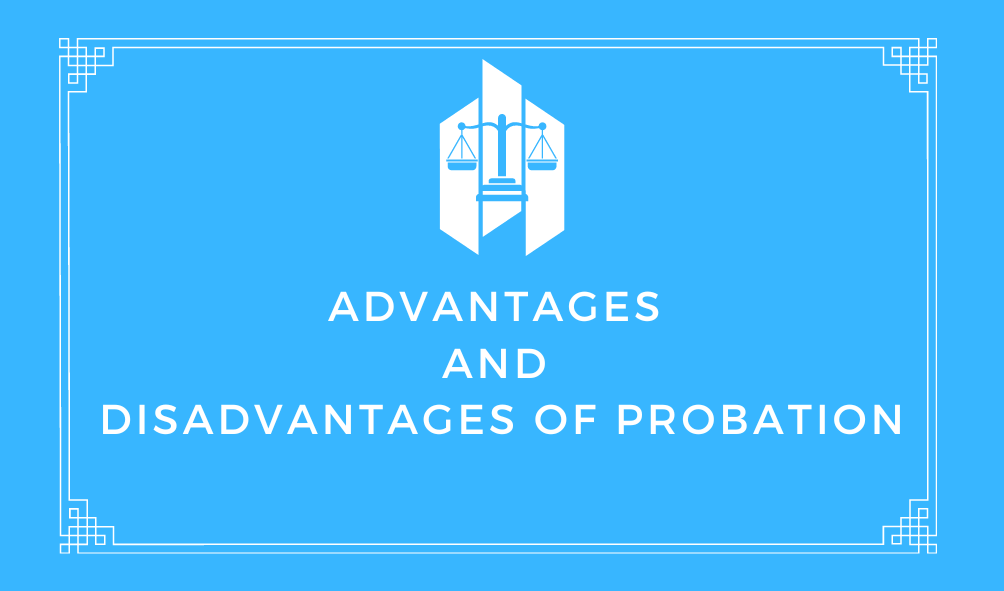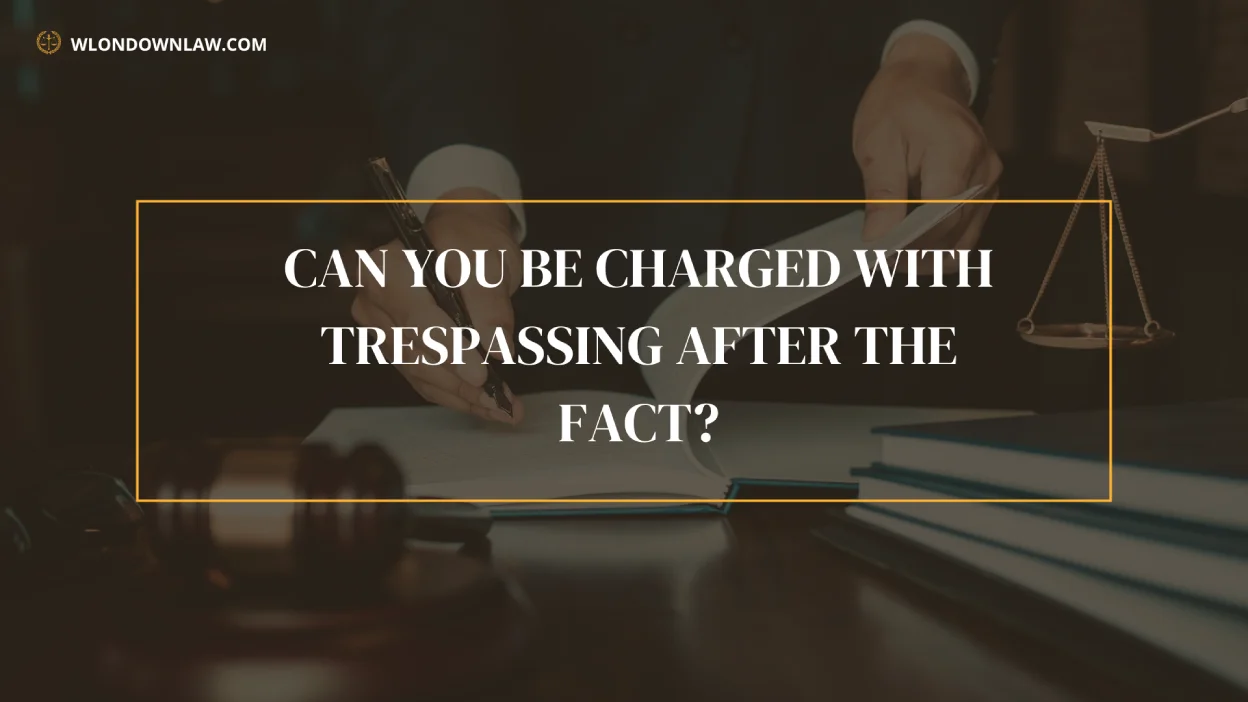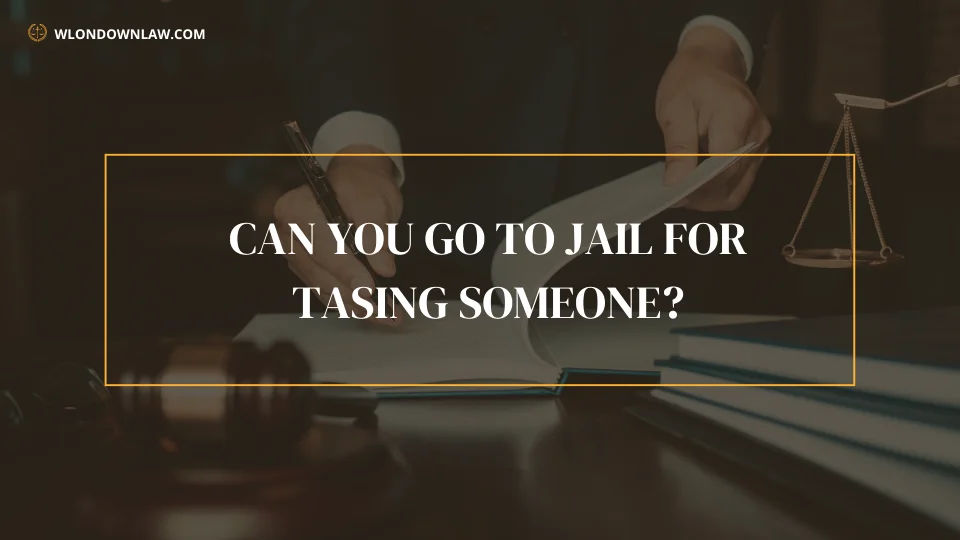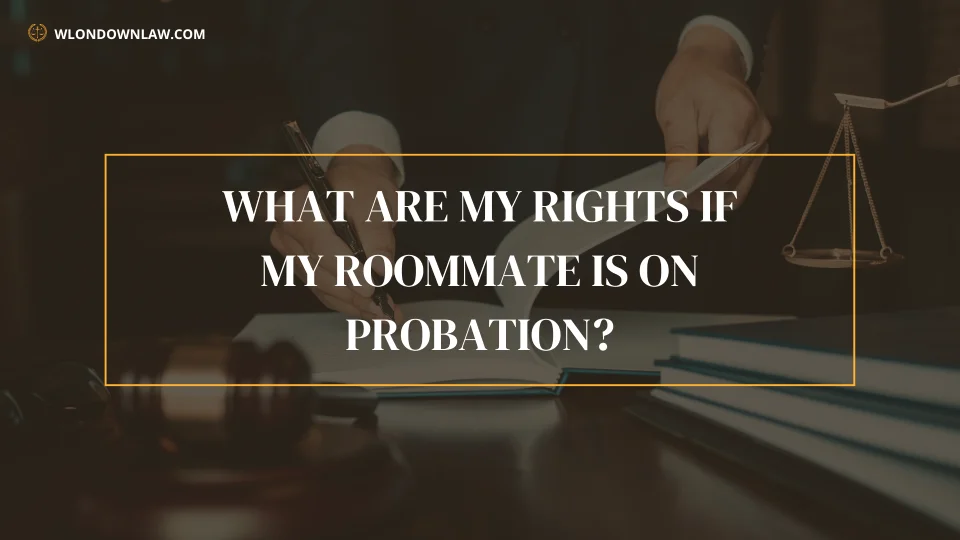Probation is a process where someone is prohibited from committing crimes for a certain period. It is often used when someone is charged with a crime or has been found guilty in a criminal trial.
It helps to reduce the likelihood of re-offending during this time. But the process also has its disadvantages in that the crime has a chance to escalate. To learn more about the advantages and disadvantages of probation, read this blog post.
Probation is an excellent option for some people and not for others. It’s important to know what the advantages and disadvantages of probation are to decide whether it’s the right option for you.
If it is the right option for you, you will have to understand what you can or cannot do on probation, and knowing why will help you decide whether this is the right choice for you.

Advantages and Disadvantages of Probation
People are very different, so their circumstances are different as well. Some people can easily do what they need to do to stay out of trouble while on probation.
On the other hand, some people are not that good at controlling themselves and can quickly get into trouble again.
Because of these differences, it is important to learn more about what you can and can’t do on probation and why. There are many reasons why probation is used. A person may need to do community service or pay fines or restitution.
You may also like: Plea Bargaining: Benefits of Plea Bargaining For Prosecutors
They may be ordered to attend counseling or to stay away from places or people where they know someone who is being convicted of a crime.
To know more about the advantages or disadvantages of probation, you need first to understand what probation is.
Probation
It is a type of sentence that is ordered for a person who has been found guilty of a crime. This person must follow a certain set of rules until their sentence has been completed.
These rules may include attending meetings with probation officers, having drug tests, staying away from alcohol or drugs, and doing community service.
Probation means that you are under the supervision and have restrictions placed on your activities. It is given to you because you are in a place where you can’t be trusted.
You will have to follow a set of rules that are given to you. These rules may include going to meetings, counseling, staying out of trouble, and paying certain fines.
While you are on probation, you must make a good choice about where you spend your time and with whom you associate.
You may also like: The Difference: Arraignment vs Indictment
If you fail to do this, you may be sent back to jail or prison. A probation officer will visit you regularly to ensure you obey the rules. Some of the rules are:
- Maintaining frequent communication with the supervisor
- Not using substances to alert the manager of a change in address or contact information
- Getting a job, even a part-time one
- Not committing any new offenses
- Attending classes
- Not breaking any driving laws
Probation may be as little as a year or for a very long time, depending on the circumstances.
Advantages of Probation
There are many advantages of being placed on probation. If you receive probation, you can avoid serving time in prison.
If you serve time, you may have some other privileges you don’t get when you are in a regular jail or prison.
Preventing More Criminal Socialization
When someone is imprisoned, they are placed in the same category as other criminals. It can assist low-level criminals in developing relationships with higher-level offenders that may lead to problems down the road.
Costs
Even while probation might last far longer than jail time, it is still much less expensive to supervise a defendant for months or even years than it is to keep them in jail.
Be Regional
The offender does not need to relocate while on probation in order to be monitored.
In contrast, a person who is given a jail sentence may end up serving it in a different part of the state or even another nation.
Staying close by makes it much simpler to stay in touch with and get assistance from family and friends.
Maintain Your Family
When given a choice, the defendant should choose probation because providing his conviction doesn’t lose him his work (as a DUI/DWI conviction can get a long-haul trucker fired), he will still be able to support his family.
However, even if he loses his work, a defendant is still free to hunt for another job. Probation is a huge benefit for a family whose survival and ability to pay the bills depends on the defendant’s income.
Few Will Be Aware
The majority of people won’t be aware that you are on probation. You’ll be going about your regular business, and unless someone runs a background check or looks up public records, nobody will ever find out that you were charged with a crime.
You might never have to disclose your convictions to anyone unless your place of employment has a policy regarding them (for example, in the medical or educational fields).
Flexibility
Because everyone is unique, they all have different needs. With probation, the PO can collaborate with the offender to assist him in acquiring the support he may require to succeed, such as counseling or treatment.
In prison, offenders have fewer options, and it’s uncommon for anyone to try to improve the defendants’ character.
Away from Jail
Typically, receiving probation means avoiding all or part of a jail sentence. People view imprisonment as the worst-case scenario and view probation as a far better alternative.
After all, most routine activities are permitted while on probation. A defendant is free to go to work, and school, eat out, watch Netflix at home, work out, and do other activities.
Shame and embarrassment were spared
No one wants to be linked with criminals. Therefore the probationary process is tolerant in keeping the crime secret and avoiding the humiliation of incarceration.
Reformation
First-time offenders and minor offenders who violate the law are given a chance to change. It keeps them from developing into dangerous, seasoned criminals.
Crowding issues are resolved.
Probation can be used to regulate the population and address overpopulation issues.
Disadvantages of Probation
The disadvantages of probation include the possibility of having an arrest warrant placed against you and being labeled a “fugitive,” not being allowed to own firearms, being unable to drive for two years, and other restrictions.
Reoffending Is Simple
A drawback of a relatively simple punishment is that there could not be much learning as a result. Some people require a little (or a lot) of suffering in order to alter their behavior.
Someone may not be sufficiently motivated to refrain from engaging in the same behavior that got them into trouble in the first place by receiving a simple slap on the wrist.
Additionally, since no one is directing them (apart from check-ins or meetings), the defendant is not surrounded by anyone who could influence them to make poor choices. Many people who receive probation for the first time commit crimes again before their initial probation is finished.
The Rules
While on probation, there can be a lot of rules. Ignorance is not a valid defense.
There will be moments when it will be challenging to abide by the guidelines, such as during social gatherings where friends and family are all consuming illegal substances or alcohol.
The accused must be aware of them and adhere to them. Even when doing so is not enjoyable.
Time Consuming
Even though most people would rather be on probation than in jail, probation sentences typically end up being much longer than a simple jail sentence.
For instance, a person who is convicted of drunk driving for the first time may face 30 days in jail or 24 months of probation.
Even if a brief period in jail would be inconvenient (and detrimental to academic or professional endeavors), at least it would be over and done with. On the other hand, probation can be prolonged if you make mistakes.
Employment
Even though there is plenty of employment, some firms won’t hire those who have been convicted of specific crimes.
In order to find work, a defendant might have to hunt for it more diligently and persistently and take unattractive occupations.
Confronting The Probation Officer
If you do not follow the conditions of your probation, you may receive a violation warrant. You should call the probation officer to tell them that you will comply with the conditions of your probation.
The probation officer is responsible for supervising you during the probation term. They are required to check on you to make sure that you are meeting the conditions of your probation.
If the probation officer finds that you have violated the conditions of your probation, they may arrest you. Your probation officer will be able to decide how long you will serve in prison if you are convicted of the crime.
You should cooperate with the probation officer. The probation officer will tell you what to do if you violate the conditions of your probation.
Community Reaction
People enjoy making comments while sitting in a chair. It is simple to criticize the legal system when it appears that those who receive “probation” avoid punishment.
Most people merely want to see justice done and are unaware of the many benefits and drawbacks of probation (in the form of jail time).
Although placing offenders on probation may be in their best interests as well as those of the community, this can undermine public trust in government leaders, police enforcement, and the legal system.
Final Verdict
We hope you enjoyed our blog on the advantages and disadvantages of probation. We hope that this article helped you to understand the process better and that you gained some insight into what it is like to be on probation.
Many people find it the best option for them, especially those who are new to the law and need to be monitored.
Without probation, people can get into trouble and go to jail. Thank you for reading. We would love to hear from you!


